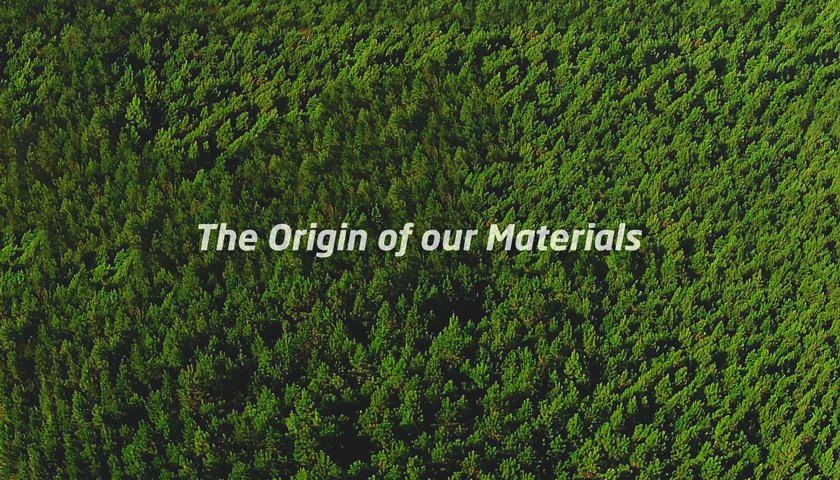EightDoors is not only a door manufacturer. Our company cares about the environment and practices sustainability by using only certified reforested wood. We are a company committed to the environment and the social and economic issues of the regions in which we operate. Our policy certifies that we have no involvement in the illegal timber trade, be it through exploitation, use and/or commercialization of said products.
In order to ensure the origin of our certified products, EightDoors declares that it does not acquire wood from:
-
Forests with high conservation value
A forest with high conservation value is one that has an especially high ecological or social value. This includes endangered ecosystems, host rare species, places that are valuable in terms of biodiversity, forests that protect watersheds and forests fundamental to the survival and cultural identity of local communities. High value conservation forests give more value to human and environmental impacts than to the potential value of the timber in the forest. EightDoors believes in conserving biodiversity and thus the health of the environment and local communities.
-
Genetically modified forests
Genetically modified organisms (GMOs) are organisms that have mutated with the scientific insertion of a selection of isolated genes, often from a different species from the recipient. Genetically modifying trees is a relatively new tool in forestry, meaning we are still learning about the potential consequences that GMO can have in this field. In the agricultural model, GMOs often lead to the application of more herbicides, as with GMOs a crop can be made more resistant to certain chemical applications. These herbicides kill weeds, while preserving the main crop. Once sprayed, the story of the herbicide doesn’t end; herbicides leach into the soil, runoff into waterways and have detrimental effects on the wildlife that relies on those waterways.
-
Illegally exploited forest areas
The social, environmental and economic implications of illegal logging are profound. Illegal logging is unfortunately a multi-million dollar industry; one that we proudly choose not to participate in. This unethical practice not only leaves a devastating scar behind, but it also strips the economic livelihood of the communities surrounding the affected area. It creates a vicious cycle of economic destabilization, where the cost of timber is reduced and ethical companies see a reduction in profit. Often, timber is harvested illegally where loggers do not have permission to cut, or even in a protected area. These trees are then transported without payment of duties (due to fraudulent behavior), and are often replaced with crops like oil palm. Illegal harvest contributes to deforestation and by extension, climate change.
-
Areas where civil and traditional rights have been infringed
The Amazon forest is renowned for its beauty and biodiversity, but is now under threat because of illegal logging. Because there is no accountability, this type of slash and burn harvesting leaves wastelands behind.
There is often a human cost when land is drastically deforested in this fashion. Land that fed indigenous people with wild game for centuries suddenly becomes barren. Because of the major disruption, deforestation causes lakes that later feed rivers and streams to dry up, consequently killing fish, birds and animals that prey on fish and birds. Humans that rely on these animals for sustenance and waterways for travel are severely affected by unethical and illegal logging practices.
In many parts of the world, the most marginalized groups of people are often forcefully removed or taken advantage of in the name of logging or development. In the wake of these civil and traditional rights violations, environmental devastation and violence are often left in place of the formerly intact habitat.
-
Areas in which the native forest is converted into plantations
In recent history, there have been many examples of how tragedy can spread when a native forest is converted into a monocropped plantation. Many forests have adapted over thousands of years to be able to combat fire, propagate via fire, or regenerate and become more abundant after a fire. The Portuguese Cork Oak is a beautiful example of this. It’s thick bark protects the inner wood from burning when a fire comes through and burns the understory plants. These magnificent trees can then provide habitat, nutrients and shade while forest flora and fauna to regenerate. Many oak savannah habitats evolved to regenerate with fire.
What happens when native forest is converted into a plantation? In addition to losing habitat and forage for native animals, the natural defense mechanisms of the ecosystem are diminished. In 2017 in the Pedrógão Grande region of Portugal, a devastating fire destroyed many villages, took many lives, and ravaged thousands of acres.
One of the contributing factors to the severity of this fire is the concentration of unsustainable eucalyptus plantations in the region. The eucalyptus tree is full of volatile oils, which are extremely flammable. Whereas the native oaks may have slowed the fire down, the plantation eucalyptus caused the fire to rage on.
Origin of Materials
Preserving native forest is intrinsically connected to preventing exploitation, civil and traditional rights and habitat protection. EightDoors acquires wood from the most ethical source available to us. We are proud to say that we do not support unethical environmental and social practices. High quality products must come from high quality sources that takes the longevity of the environment into consideration. We feel good about the origin of our materials, so you can rest assured that you are getting the best door for you and yours.



